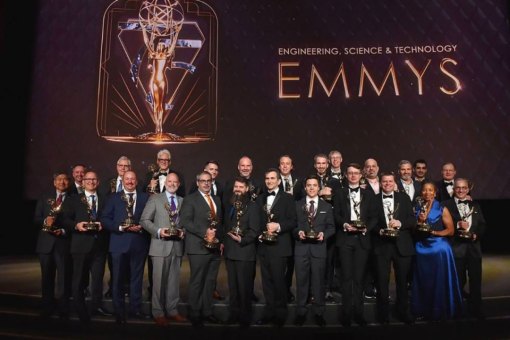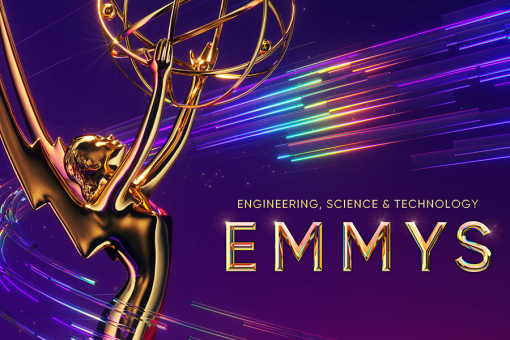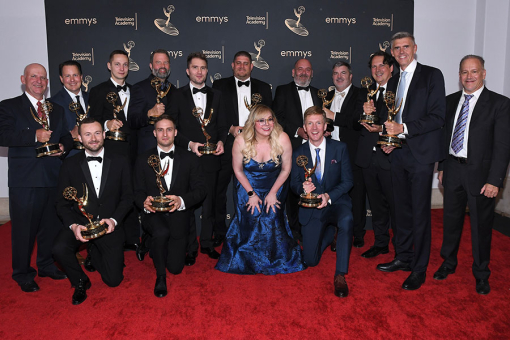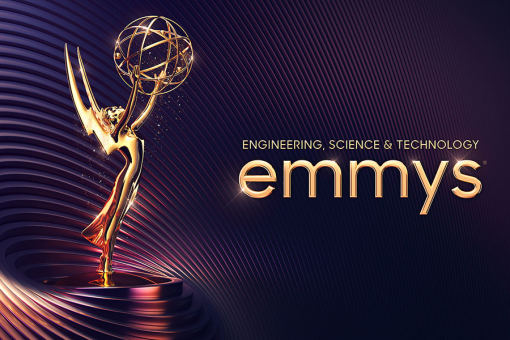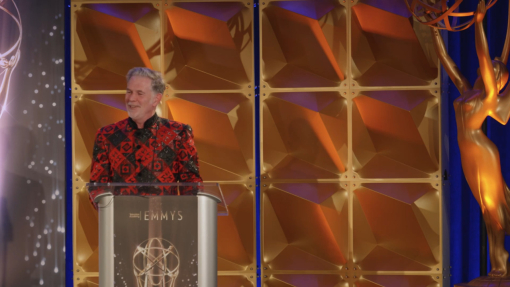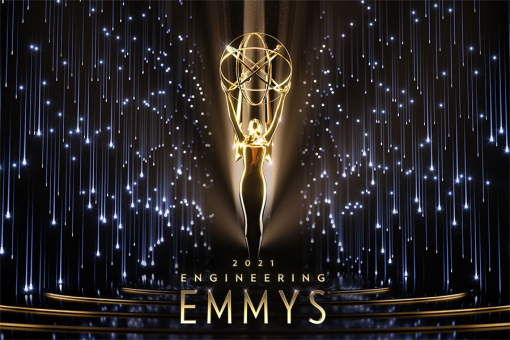The men and women of the Television Academy’s Engineering Awards Committee don’t just have a zeal for science and technology; they have a sense of humor about them, too.
Near the end of the 2017 Engineering Emmy Awards, committee chair Barry Zegel, who is senior vice president and general manager of CBS Television City in Los Angeles, took to the presentation podium to note, “One of the hallmarks of award shows is the In Memoriam, which recognizes the passing of industry luminaries. We thought it was an idea whose time had come for our ceremony, but with a twist.
"Our In Memoriam is not for the dear departed, but for defunct technologies. Ladies and Gentlemen, let’s take a nostalgic look down memory lane.”
There followed a nearly three-minute video tribute, complete with stirring music, “To Those Who Served Us Well” – historic tape formats, cameras, recording devices and other equipment and more recent viewing elements such as the 4:3 aspect ratio and 3-D television set. At the video’s end, Zegel quipped, “I can see there’s not a dry eye in the house.”
On the contrary, everyone was in good spirits on this night, which honored the individuals and corporations who, as Television Academy chairman and CEO Hayma Washington said in his welcome, “are passionate and excited about taking technology to new heights.”
Held October 25 at Loews Hollywood Hotel, the ceremony was hosted for the second consecutive year by Kirsten Vangsness, who plays technical analyst Penelope Garcia on CBS’s Criminal Minds.
This year’s winner of the Charles F. Jenkins Lifetime Achievement Award, which recognizes a living individual whose contributions have significantly affected television technology and engineering, was Leonardo Chiariglione, considered the “father of MPEG” for his groundbreaking efforts in the field of media compression.
The acronym MPEG stands for both the organization Moving Picture Experts Group, which Chiariglione co-founded and chairs, and for the worldwide standard for video compression and transmission.
Engineering committee member Wendy Aylsworth accepted the award on behalf of Chiariglione, who was heading a MPEG meeting in China, and read his acceptance remarks.
“I’m happy to see that the Academy has recognized my 30 years of work, dedicated to making real the vision of humans finally free to communicate without barriers, and sharing more and more rewarding digital media experiences,” Chiariglione wrote.
“I consider my endeavors were driven by the hand of God, and that tens, hundreds and thousands of people have made MPEG what it is recognized for, which is the originator of standards that have changed the lives of billions of people for the better.”
Sony Corporation was the recipient of the Philo T. Farnsworth Corporate Achievement Award, which recognizes an agency, company or institution whose contributions have significantly affected television technology and engineering.
Among those contributions, recounted by Zegel: electric lavaliere mics, digital multi-track recording formats and equipment, audio mixers, studio tape recording formats and video production switchers and monitors.
Accepting was Hiroshi Kiriyama, Sony Corp.’s vice president, Media Business, Professional Solutions and Services Group, attending from Japan. “I direct sincere thanks to the Television Academy and Engineering Emmys committee for this amazing recognition,” Kiriyama said.
“Our history of development is the history of Sony learning from our customers. I’d like to thank my American colleagues for staying so close to our dear customers. Our customers’ requirements are always [top priority]. This is our DNA, and this is Sony Professional’s engagement to the industry.
"Our customers expect that we will continue to take [them] to the next level. For this, I’d like to thank all our customers. We are proud of our past. We are opening doors to the new future. We look forward to coming back for even more, because we are committed to the success of the industry. Thank you very much.”
Seven Emmys were also bestowed. The recipients were:
• The ARRI Alexa Camera System;
• Canon 4K zoom lenses;
• Fujifilm Fujinon 4K zoom lenses;
• The Walt Disney Studios for Disney global localization, a system that allows for the efficient creation and global release of foreign-language dubs and subtitled programming;
• The McDSP SA-2 Dialog Processor, used by audio mixers to fill out dialog processing limitations made by microphone placement and locations during production;
• The Joint Collaborative Team on Video Coding for those engineers’ development of High Efficiency Video Coding (HVEC), which enables efficient delivery of ultra-high definition content over multiple distribution channels;
• and Shotgun Software, a production management platform which streamlines collaborative broadcast, episodic animation and visual effects pipelines.
This article originally appeared in emmy magazine, Issue No. 10, 2017



